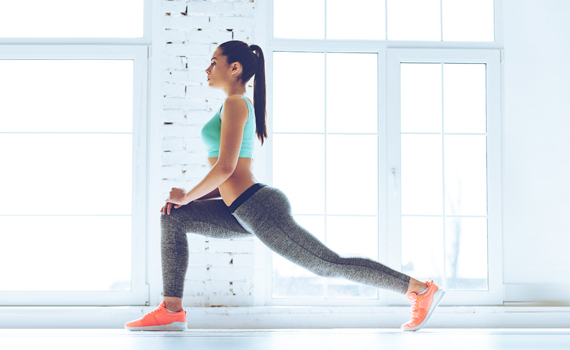

A warm up is a session that you do before a workout to prepare your muscles, heart and lungs. This will usually consist of some stretches and low intensity cardio work. People should aim to warm up for between 10-20 minutes.
Here is what happens during a warm up:
Body temperature rises
It is important to warm up your body before start a workout as this helps to increase the heart rate and the amount of oxygen that is getting to the muscles; therefore, making the recovery time a lot less.
Muscle temperature rises
Warm muscles are much better at contracting and relaxing. This is very important when doing a workout, as it reduces the risk of over stretching a muscle and therefore causing an injury. Warm muscles are also a lot more elastic which enhances your speed and strength.
Increased range of movement
A warm up allows your joints (knees, hip and shoulders) to reach their maximum potential.
How to plan your warm up
The warm up that you do will differ depending of on the type of exercise that you plan on doing after. If you are planning on going on a fast walk you should start with a slow walk then slowly increase the speed. The point of a warm up is to slowly ease yourself into a workout and prepare your body for the task ahead.
Avoid static stretches
When warming up you should try to move a lot a do more dynamic stretches. Try to do the static exercises once you have finished your workout and you are starting to cool down.
Make sure you are in the zone
It is important that you are mentally ready for the warm up and workout. If you are not prepared for the workout you may make a mistake that could lead to an injury.
It is important to note that everyone is not the same so individuals will warm up in different ways. It can take some people a while to work out what works for them. If you are struggling to find a warm up routine for you we recommend that you watch some videos on exercises that you can do or discuss with a professional such as a personal trainer or a physiotherapist.
This article is intended to inform and give insight but not treat, diagnose or replace the advice of a doctor. Always seek medical advice with any questions regarding a medical condition.










